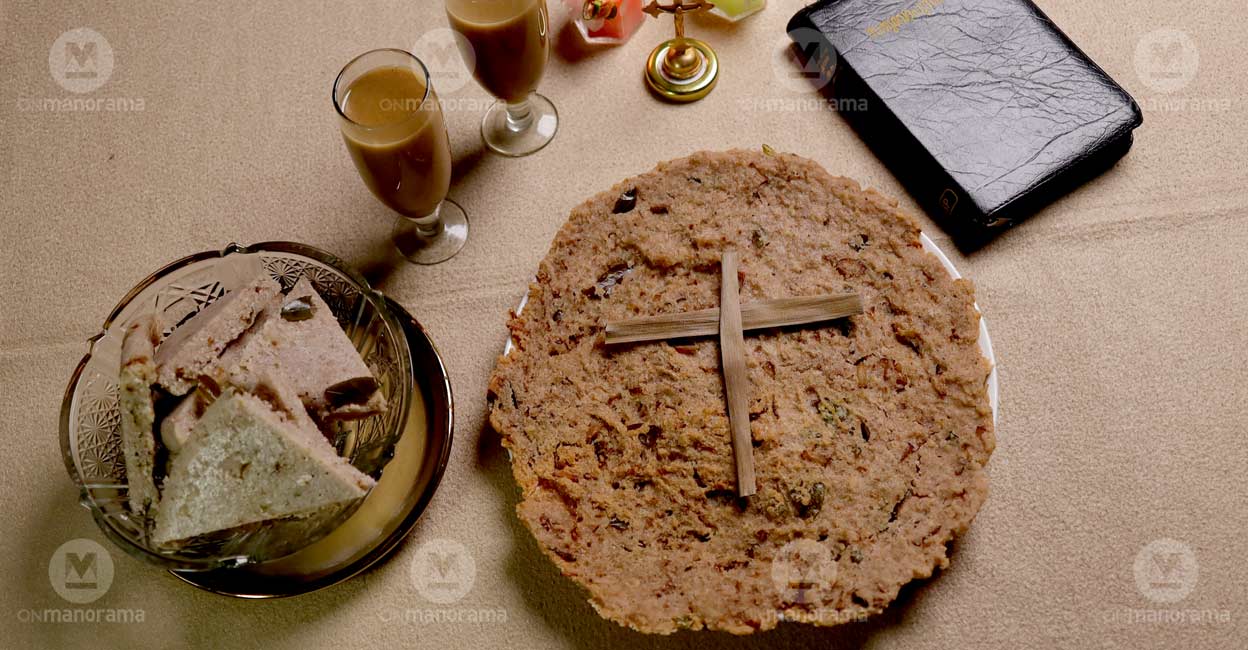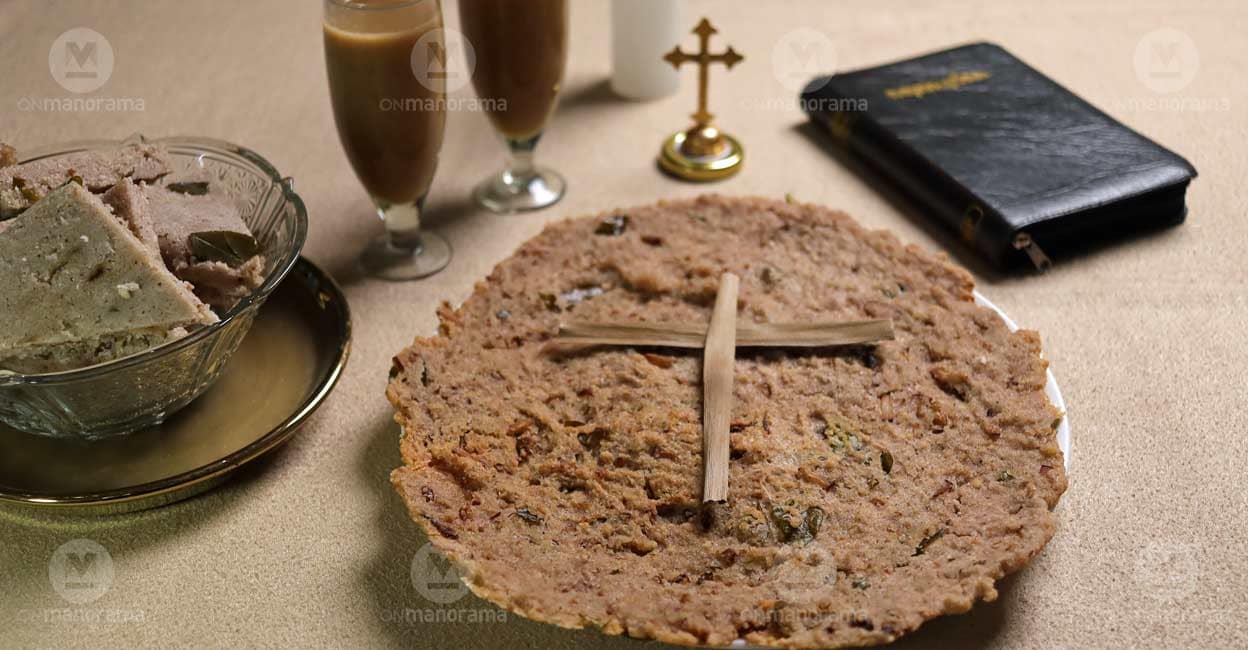Maundy Thursday memories toasted: Chutta pesaha appam in Kerala’s Syrian Christian homes

Mail This Article
In most homes in Kerala’s high ranges, steamed kurisappam is not essential for Pesaha (Maundy Thursday). Instead, their Maundy Thursday revolves around making and sharing chutta (toasted) pesaha appam. If you happen to walk into a Syrian Christian home on the day of Pesaha, you might be welcomed by the quiet crackle of firewood and the scent of toasted rice batter rising from a uruli (cauldron) placed over glowing embers.
This is chutta pesaha appam—a rare, hearth-baked version of the traditional Maundy Thursday bread, still prepared in some Syrian Christian communities, especially in regions like Kothamangalam, Perumbavoor, and parts of Thrissur.
Holy Week—the final week of Lent—is one of the most solemn and spiritually intense periods in the Christian calendar. It begins with Palm Sunday and leads up to Easter, commemorating the final days of Jesus Christ’s life on earth. Each day carries its own significance, but for many in Kerala, Maundy Thursday (Pesaha) holds a deeply personal place in the heart.
In Kerala, Holy Week is marked by quiet rituals, extra church services, and fasting. Life gently slows down. For Syrian Christians, Maundy Thursday is particularly important—it commemorates the Last Supper, where Jesus broke bread with his disciples. That moment is recreated in many homes, not through elaborate ceremonies, but through humble food: the pesaha appam and paal.
While pesaha appam and paal are most commonly seen among Catholic households, a few Syrian Christians—especially those in the high ranges—observe their own quietly beautiful version of this Holy Week tradition. In these homes, it’s not just about customs. It’s about connection—about how a single evening each year becomes a bridge between generations.
The stillness of Maundy Thursday
There’s something unmistakable about the mood on Maundy Thursday.
The house falls into a hush. There is no rush or urgency, just a stillness that settles into every corner. In the kitchen, someone—often a mother or grandmother—is making the pesaha appam, just as her predecessors taught it. There are no shortcuts, no modern tweaks. This is food bound to memory.

The hearth is lit. A large iron uruli is placed on the flames, and the batter is poured out and patted into a circle. A cross is marked on the batter using palm leaves. A second pot, filled with embers, is placed on top. The result is a gently charred, almost smoky appam—firm but soft, with a taste that quietly tells you it’s not an everyday thing.
The moment the appam is cut
The most sacred part of the evening comes just before dinner. Everyone gathers. The head of the family makes the sign of the cross on the appam and says a short prayer. Then the appam is broken – not sliced like an ordinary dish, but broken with reverence. Each person receives a piece in their hands.
Even the youngest child in the family falls silent during that moment. Not because they’re told to, but because they feel it’s important.
This is how love is shared in this house – quietly, without fanfare, through a small piece of bread and a sip of pesaha paal.

And then, as always, laughter slowly returns. Children race off to neighbouring houses to taste their friends’ versions, collect tiny bits of appam, and sip the paal prepared that evening.
The night feels warm – not just because of the summer air, but because of the sense of closeness it brings.
Chutta pesaha appam recipe
Ingredients
For the appam:
1 cup unakkalari (raw rice)
1/3 cup urad dal
1 whole coconut (½ scraped, ½ finely sliced)
5–10 shallots, sliced
3 garlic pods, sliced
1 teaspoon cumin seeds
1 sprig curry leaves
1 teaspoon salt
For the pesaha paal:
1 whole coconut (for milk extraction)
250 g jaggery
1 tablespoon rice flour
4 cardamom pods
1 small piece of dry ginger
Preparation
Appam
Soak unakkalari and urad dal separately for 3–4 hours.
Wash and drain both. Grind the rice into a smooth batter and the dal into a coarse, thick paste.
Mix both batters in a wide vessel.
Grind the scraped coconut (about 150g), 3 shallots, garlic, and cumin together. Add this to the batter.
In a small pan, fry the finely sliced coconut until pink. Add sliced shallots and curry leaves. Sauté until golden brown.
Add the fried mix (without the oil) to the batter. Add salt and mix well.
Add a little water—preferably by rinsing the mixer jar—and stir until the batter is smooth but thick.
Heat an iron uruli over an earthen stove. Once hot, grease it with the leftover oil.
Pour the batter into the uruli and spread it to 1–2 cm thickness.
Place an earthen pot filled with hot embers on top to cook from both sides.
After about 20 minutes, your chutta pesaha appam will be ready. Let it cool slightly before cutting.
Pesaha paal
Grate and extract thick coconut milk.
Heat jaggery with a bit of water until melted. Strain to remove impurities.
Mix the coconut milk and jaggery syrup in a pot.
Dissolve rice flour in a little coconut milk and add to the pot, stirring constantly to avoid lumps.
Add crushed cardamom and dry ginger.
Heat on a low flame until it just begins to boil. Turn off the heat before it boils again.
This is not a dish you cook solely for taste. It’s made for that one quiet evening when you pause and remember what matters—faith, family, and the warmth of stories passed down, ember to ember.

